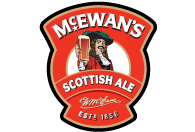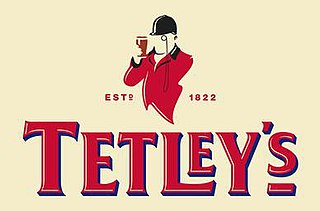
James Shipstone & Sons was a brewery in New Basford, Nottingham, England, that opened in 1852 [1] and closed in 1991.

James Shipstone & Sons was a brewery in New Basford, Nottingham, England, that opened in 1852 [1] and closed in 1991.

The company produced the Shipstones brand of beer, known locally as Shippo's.
The company was founded by James Shipstone in 1852 at the 7-acre (28,000 m2) Star Brewery in the New Basford area of Nottingham. A red illuminated star at the top of the brewery's tower could be seen for miles around.
In 1922, it absorbed both the Beeston Brewery Company and William Hooley Limited.
By 1939, the company owned 550 licensed premises, thirty diesel lorries for long distance delivery work and fifty horses for local delivery work.
The brewery remained an independent family business until 1978 when the company was purchased by Greenall's of Warrington which also purchased a number of other breweries from neighbouring towns and cities. Greenall's introduced minor changes to the production of the various Shipstones beers and increased the marketing of the company. In 1987, Shipstones became the main shirt sponsor of Nottingham Forest F.C., an arrangement which continued until 1994. [2]

In 1990, Greenall's announced that they were ending all beer production and becoming a retailer only company. Production at Shipstones Brewery ended in early 1991 after 139 years. The Shipstones brand continued to be produced for some years afterwards at breweries in Burton upon Trent.
Today the company offices have been taken over, while some housing and retail units have been constructed on other parts of the site. The landmark Victorian building, constructed in 1900 with later extension, remains standing and has been earmarked for conversion into offices.
In November 2013, a 1921 portrait by Noel Denholm Davis of Sir Thomas Shipstone, of the family who owned the brewery, was auctioned by Biddle and Webb of Birmingham. It was purchased by a Nottingham art collector, Ash Gangotra, who offered it on long-term loan to a planned Shipstone's heritage centre. [3] [4]

Labatt Brewing Company Limited is a Belgian-owned brewery headquartered in Toronto, Ontario, Canada. Founded in 1847, Labatt is the largest brewer in Canada.

John Smith's Brewery in Tadcaster, North Yorkshire, England, produces beers including John Smith's, the highest selling bitter in the United Kingdom since the mid-1990s.

Boddingtons Brewery was a regional brewery in Manchester, England, which owned pubs throughout the North West. Boddingtons was best known for Boddingtons Bitter (Boddies), a straw-golden, hoppy bitter which was one of the first beers to be packaged in cans containing a widget, giving it a creamy draught-style head.

McEwan's is a brand of beer owned by Carlsberg Marston's Brewing Company. It was originally brewed by William McEwan's Fountain Brewery in Edinburgh, Scotland. The McEwan's brand passed to Heineken in 2008 after their purchase of Scottish & Newcastle's British operations. Heineken sold the brand to Wells & Young's in 2011, who sold their brewing operation, including the McEwan brand to Marston's in 2017. Cans and bottles are now brewed in Bedford, England.
Webster's Brewery was a brewery that was founded in 1838 by Samuel Webster and operated at the Fountain Head Brewery in Halifax, West Riding of Yorkshire, England. Webster's Green Label, a light mild, and Yorkshire Bitter gained national distribution after the company was taken over by Watney Mann in 1972. Throughout the 1970s it was known for the advertising slogan: "Drives out the northern thirst".

The Pabst Brewing Company is an American company that dates its origins to a brewing company founded in 1844 by Jacob Best and was, by 1889, named after Frederick Pabst. It is currently a holding company which contracts the brewing of over two dozen brands of beer and malt liquor: these include its own flagship Pabst Blue Ribbon, as well as brands from (now-defunct) breweries, including:

Basford is a northerly suburb of Nottingham, England, incorporated into the city in 1877. It gave its name to Basford Rural District, which existed from 1894 to 1974. The ward population at the 2011 census was 16,207, estimated at 16,779 in 2019. Next to Old Basford is New Basford, which is mainly Victorian. Basford lies close to the River Leen, a tributary of the River Trent. It is linked to Nottingham City Centre to the south and Hucknall and Bulwell to the north by the Nottingham Express Transit tram service.

Nottingham and District Tramways Company Limited was a tramway operator from 1875 to 1897 based in Nottingham in the United Kingdom.
De Vere is a hotels and leisure business, which until the late 1990s was a brewing company known as Greenall's. It used to be listed on the London Stock Exchange and was once a constituent of the FTSE 100 Index.

The Falstaff Brewing Corporation was a major American brewery located in St. Louis, Missouri. With roots in the 1838 Lemp Brewery of St. Louis, the company was renamed after the Shakespearean character Sir John Falstaff in 1903. Production peaked in 1965 with 7,010,218 barrels brewed and then dropped 70% in the next 10 years. While its smaller labels linger on today, its main label Falstaff Beer went out of production in 2005. The rights to the brand are currently owned by Pabst Brewing Company.

Stones Brewery was a brewery founded in 1868 by William Stones in Sheffield, West Riding of Yorkshire, England, and purchased by Bass Brewery in 1968. After its closure in 1999, its major brand, Stones Bitter, has continued to be produced by the Molson Coors Brewing Company.

Tetley's Brewery(Joshua Tetley & Son Ltd) was an English regional brewery founded in 1822 by Joshua Tetley in Hunslet, now a suburb of Leeds, West Yorkshire. The beer was originally produced at the Leeds Brewery, which was later renamed the Leeds Tetley Brewery to avoid confusion with a microbrewery of the same name.
Nottingham Brewery, is a microbrewery located in Nottingham, England. The name Nottingham Brewery refers to two different breweries in the Nottingham area. The first was established in 1847 and situated on Mansfield Road, next door to The Rose of England public house. The Brewery was demolished to make for York House, which itself was demolished in 2016. The current brewery was established in 2001 in Radford.

The Emu Brewery was a brewery in Perth, Western Australia, which traced its history to the first decade of the colony. Founded in 1837 by James Stokes as the Albion Brewery, it was located beside the Swan River on a block bounded by Mounts Bay Road, Spring Street and Mount Street. The business changed hands — and names — several times, until its ultimate acquisition by competitor the Swan Brewery in 1927.
Hoegaarden Brewery is a brewery in Hoegaarden, Belgium, and the producer of a witbier, which is different from a wheat beer. Hoegaarden de-emphasizes hops, and is unfiltered, giving it the hazy, or milky, appearance--which makes it a wit (white) beer.

Camerons Brewery is an English brewery established by John William Cameron in Stranton, Hartlepool, County Durham, in 1865. It is the largest independent brewer in the North East of England, with a brewery capacity of 1.5 million hectolitres and a tied estate of 75 houses. It is one of the oldest industrial concerns in Hartlepool, and has historically been one of the largest employers.

The local beer industry in Singapore began in the early 1930s with the formation of Malayan Breweries Limited (MBL) in 1931 and later Archipelago Brewery in 1933.

The Beeston Brewery Company was a brewery based in Beeston, Nottinghamshire, England that opened in 1880 and closed in 1922.

The Jacob Schmidt Brewing Company is the name of a former brewing company that was located at 882 W. Seventh Street in St. Paul, Minnesota. Founded in 1855, the brewery was originally known as the Christopher Stahlmann Cave Brewery.